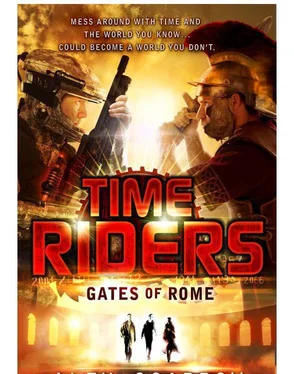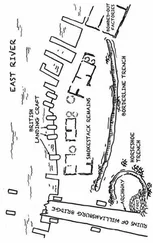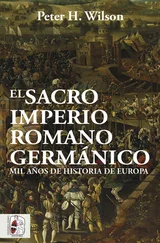Alex Scarrow - Gates of Rome
Здесь есть возможность читать онлайн «Alex Scarrow - Gates of Rome» весь текст электронной книги совершенно бесплатно (целиком полную версию без сокращений). В некоторых случаях можно слушать аудио, скачать через торрент в формате fb2 и присутствует краткое содержание. Жанр: Фантастика и фэнтези, на английском языке. Описание произведения, (предисловие) а так же отзывы посетителей доступны на портале библиотеки ЛибКат.
- Название:Gates of Rome
- Автор:
- Жанр:
- Год:неизвестен
- ISBN:нет данных
- Рейтинг книги:4 / 5. Голосов: 1
-
Избранное:Добавить в избранное
- Отзывы:
-
Ваша оценка:
- 80
- 1
- 2
- 3
- 4
- 5
Gates of Rome: краткое содержание, описание и аннотация
Предлагаем к чтению аннотацию, описание, краткое содержание или предисловие (зависит от того, что написал сам автор книги «Gates of Rome»). Если вы не нашли необходимую информацию о книге — напишите в комментариях, мы постараемся отыскать её.
Gates of Rome — читать онлайн бесплатно полную книгу (весь текст) целиком
Ниже представлен текст книги, разбитый по страницам. Система сохранения места последней прочитанной страницы, позволяет с удобством читать онлайн бесплатно книгу «Gates of Rome», без необходимости каждый раз заново искать на чём Вы остановились. Поставьте закладку, и сможете в любой момент перейти на страницу, на которой закончили чтение.
Интервал:
Закладка:
They learned that Crassus was one of the few members of the dissolved Senate still alive. The entire political class of Rome entirely wiped out by years of purges. Alive solely because he was a wily politician. Self-serving. Because he’d been one of the few senators to understand their emperor was in an unassailable position, and willing, very publicly, to vote in favour of Caligula’s order that the Senate should dissolve itself.
They’d listened to the old man’s regrets. That a stronger, more moral man would have stood beside his fellow senators and registered his outrage. Instead, his finely-tuned political senses had anticipated Caligula’s agenda. The imperial order had been Caligula’s rather unsubtle attempt to identify which senators and their families were to face the lions first.
‘I am not a brave man,’ he’d said. ‘I have far too weak a stomach for that kind of thing. Courage is a thing for young men… or dying men.’
Marcus Cornelius Crassus had his life still, and his home and wealth, because along with a handful of other equally wily old men, he’d made the right choice at the right time. He’d managed to quickly distance himself from that foolishly planned attempt on Caligula’s life nearly fifteen years ago. Because, since then, he’d been prepared to praise Caligula’s imperial decrees, to flatter the man, to endure his poetry recitals, to clap enthusiastically at his grotesquely one-sided demonstrations of gladiatorial skills. But, most importantly, to donate generously to the emperor.
Crassus was alive and favoured because the advice he uttered to Caligula, on the few occasions that the emperor deigned to ask for it, was what he wanted to hear.
‘Since that failed attempt, my hope was always that Caligula would kill himself. By accident, or in one of his dark moods, take his own life. But the day of that visitation at the amphitheatre, real or not, gave him a sense of destiny. At least in his own mind. And now, far too late, I finally see that Caligula will destroy Rome long before he destroys himself.’ Crassus had smiled sadly. ‘I hope in my final years I have found in me a little of what my friend Cato has in abundance.’
Quintus Licinius Cato, they learned, was a tribune in the Guard. Once upon a time the son of a court slave, he’d been given his freedom on condition he joined the legions. He’d served in the Second Legion, stationed on the Rhine frontier. There he’d fought alongside Macro for many years guarding the western banks of the River Rhine. It was the stretched-thin red Roman line that was struggling to hold back the eastern hordes that collectively sensed, like a pack of hungry dogs, that under Caligula, Rome was on the cusp of eating itself.
Despite an unpromising start, Cato had distinguished himself many times over in combat. Capable and quick-witted. Maddy sensed Macro looked upon his old comrade with something like fatherly pride. They’d bored Crassus into going to bed with their bawdy tales from the Second; stories of heroic rearguard actions and daring counter-insurgency missions that seemed to enthral Liam.
She was looking at Liam when Macro had said his young friend, Cato, had been only sixteen when he’d entered the Second. A pampered, educated court slave, pale-skinned and whippet-thin and unlikely to cope long with the rigours and hardship of army life.
‘I’ll tell you, when I first caught sight of young Cato, I didn’t think too much of him. Looked like a strong fart would blow him over.’
Liam had chuckled at that.
‘But I watched this young lad turn into a fine soldier… and a fine officer.’
They learned that ten years ago, Macro had retired from the Second with his pension and bought the crumbling apartment block in the Subura as an investment. Meanwhile Cato had been headhunted by the Praetorian Guard’s praefectus — always on the lookout for officers with talent.
Finally with Macro’s snoring echoing round the atrium — sleeping off Crassus’s wine — Cato bid them goodnight and to get some rest. There were ‘others’ he and Crassus wanted them to meet tomorrow. A slave had shown them to their rooms.
‘The Stone Men are support units,’ said Maddy presently. ‘Clearly.’
‘And this Caligula has a dozen of them as his personal guard,’ added Liam.
‘But… why would they protect Caligula?’ asked Maddy. ‘I mean they wouldn’t unless they’ve been programmed to.’
‘Affirmative.’
Sal made a face, incredulity and amusement wrestling with each other. ‘You saying Caligula’s, like, hacked the code? Reprogrammed them?’
‘No, of course not! But — ’
‘Maybe… I dunno, maybe this Caligula fella isn’t Caligula,’ said Liam. All three of them turned to look at him as if he’d belched unpleasantly. He glanced from one face to the next and shrugged.
‘What? Why are you looking at me like that?’
CHAPTER 43
AD 54, Imperial Palace, Rome
He could never sleep during the hot months of summer, even as a child. Caligula recalled the uncomfortable summer nights in his father’s quarters, hearing the noises of an army camp coming through the tent flaps — the legions on their various summer campaigns. He smiled wistfully — half of his childhood spent in innumerable marching camps. Such a different creature he’d been back then. Just a small boy, fascinated by the same things any small boy would be: the soldiers who towered over him, their armour, their swords. In his father Germanicus’s tent he played out the battles Germanicus had fought with an army of small wooden soldiers… carved by those same men. They loved him. The legion’s mascot. Little boot.
He looked out over Rome now, still and dark.
I am something other now. No longer that boy.
The city had once seemed so vast to him, long ago: the centre of the civilized world. Now he saw nothing but an endless tangle of scruffy rooftops, and there, across the city, his magnificent unfinished stairway to the heavens. The only beautiful thing out there.
His eyes were drawn to the night sky, a star-filled night. The ghosts of silver-blue clouds chased each other in front of the moon. These days he spent more and more of his time gazing up at the sky, particularly on overcast days, wondering whether he might catch the slightest glimpse of the heavenly world far above between tumbling anvils of cloud.
My waiting world.
My kingdom.
He stepped away from his window, bored with gazing at the city. Frustrated by the very sight of it. To be God… not just a god, but to be the God, the one and only, and yet have to wait so interminably to visit the kingdom above.
I am God. So why can I not simply wish myself there… and be there?
Caligula shook his head. He had no answers to that. But then his divine baptism was yet to happen. His ‘ascension to Heaven’. Then, when it was done, of course, all those godly powers would come to him. He could simply wish… and things would happen.
And he would wish good things. He would wish wonderful things. He would shower Rome with wealth and treats. He would reward his faithful followers with eunuchs and virgins and fountains of the finest wines. There would be bountiful harvests of wheat and maize. No one would be hungry again. If only those grumbling disbelievers out there could see that.
Yes. He would also punish his enemies. Their fate would be endless torment, endless agony. He would wish on them all the pox, leprosy then hordes of gargoyle-faced demons to poke at their weeping skin with sharpened sticks, flame-hardened and still smouldering.
He shook his head at the stupidity of men.
Why doubt me? They came to me. Down from Heaven… to speak to me.
The doubters were blind. Blind to the obvious truth. That’s why he decided those fools who’d made that attempt on his life so many years ago would not need their eyes any more. How many had there been? Five hundred? Six hundred of them? To be fair, he was certain now that a good few of them had not known anything at all about the plot to kill him. But to be the wife or even the child of a conspirator was, in some way, a form of complicity.
Читать дальшеИнтервал:
Закладка:
Похожие книги на «Gates of Rome»
Представляем Вашему вниманию похожие книги на «Gates of Rome» списком для выбора. Мы отобрали схожую по названию и смыслу литературу в надежде предоставить читателям больше вариантов отыскать новые, интересные, ещё непрочитанные произведения.
Обсуждение, отзывы о книге «Gates of Rome» и просто собственные мнения читателей. Оставьте ваши комментарии, напишите, что Вы думаете о произведении, его смысле или главных героях. Укажите что конкретно понравилось, а что нет, и почему Вы так считаете.












